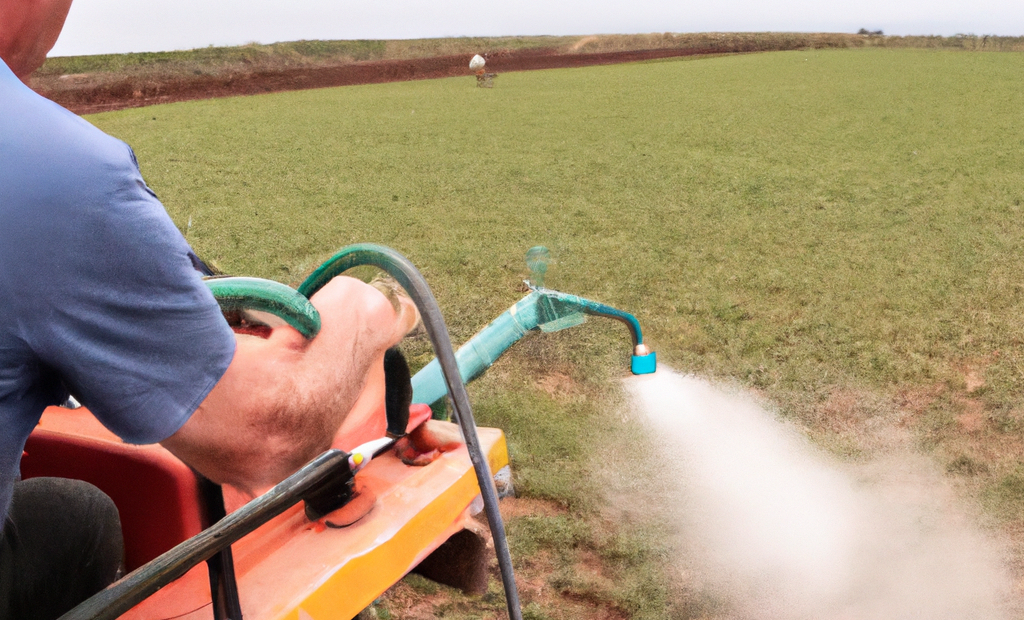The sections discuss the use of biofertilizers in organic farming for sustainable and environmentally friendly pest control. Biofertilizers not only provide nutrients for plants, but also increase their resistance to pests and diseases. The use of natural fertilizers that improve soil health is also addressed. Organic farming favors the preservation of biodiversity and ecological balance, rejecting the use of chemical pesticides. In addition, the importance of fertilizers, especially biofertilizers, in strengthening plants and improving the structure and water and nutrient retention capacity of the soil is highlighted.
In a world that is increasingly aware of the importance of sustainability and environmental protection, organic farming has gained special relevance. Within this framework, natural pest control stands out as an essential practice to ensure crop health and the quality of agricultural products. This article explores various natural solutions for pest control in agriculture, focusing on the use of biofertilizers and other ecological methods. We will explore the benefits of biofertilizers in natural pest control, analyze some agricultural products that offer ecological solutions for pest management, discuss the role of organic farming as an alternative for natural pest control, and finally, evaluate the role of fertilizers in this important task. The goal is to provide farmers with the tools and knowledge necessary to carry out more sustainable and environmentally friendly agricultural practices.
- 1. "Benefits of biofertilizers in natural pest control"
- 2. "Agricultural products: ecological solutions for pest management"
- 3. "Organic Farming: An alternative for natural pest control"
- 4. "The role of fertilizers in natural pest control in agriculture"
1. "Benefits of biofertilizers in natural pest control"
Biofertilizers represent a more environmentally friendly alternative in organic farming for pest control. These agricultural products not only provide essential nutrients for plant growth but also increase plant resistance to various pests and diseases. By using biofertilizers, farmers can reduce their dependence on chemical fertilizers, which are often harmful to the soil and the environment in the long run. Therefore, biofertilizers not only contribute to natural pest control but also promote sustainability and productivity in organic farming.
2. "Agricultural products: ecological solutions for pest management"
In organic farming, pest management has become a primary issue, luckily, green solutions are being implemented that are not only effective but also environmentally friendly. Agricultural products now include a variety of biofertilizers and natural fertilizers that help strengthen plants, making them more resistant to pests. These biofertilizers, rich in nutrients and beneficial microorganisms, improve soil health and promote vigorous plant growth, which in turn reduces the need for chemical pesticides. Organic farming greatly benefits from these products as they not only offer an effective solution for pest control but also contribute to the sustainability and productivity of agricultural systems.
3. "Organic Farming: An alternative for natural pest control"
Organic farming has established itself as a viable and sustainable alternative for natural pest control, thanks to its focus on preserving biodiversity and ecosystem balance. This practice is distinguished by its rejection of the use of chemical pesticides and its preference for organic fertilizers and biofertilizers, which promote plant growth without harming the environment. Products for organic farming, including different types of biological pest controllers, contribute to integrated pest management, encouraging the presence of beneficial species that act as natural predators. Through these methods, organic farming not only protects crops, but also guarantees food safety and the health of consumers.
4. "The role of fertilizers in natural pest control in agriculture"
Fertilizers play a key role in natural pest control in organic farming. Their proper and balanced use can help strengthen plants, making them more resistant to diseases and pests. The key is to use biofertilizers, which are fertilizers derived from natural organic materials. These biofertilizers not only nourish plants, but also improve soil structure and its ability to retain water and nutrients. In addition, they can introduce beneficial microorganisms into the soil that can help control pests. Therefore, fertilizers, and in particular biofertilizers, are essential agricultural products that can significantly contribute to natural pest control.
Adopting natural pest control solutions in agriculture has become a critical approach to maintaining the sustainability and productivity of the agricultural sector. Biofertilizers have emerged as an effective and beneficial tool for natural pest control, providing crops with essential nutrients and helping to improve plant resistance to pests. Furthermore, the use of agricultural-specific, environmentally friendly products offers eco-friendly solutions for pest management, reducing the reliance on harmful chemical pesticides.
Organic farming, in particular, is emerging as a viable alternative for natural pest control, promoting biodiversity and ecological balance. Furthermore, the crucial role of fertilizers in this approach cannot be underestimated, as they help enrich the soil, promoting healthy plant growth and decreasing their susceptibility to pests.
In short, through the combination of biofertilizers, environmentally friendly agricultural products and organic farming practices, we can achieve more natural and sustainable pest control in agriculture. This approach not only protects and improves the health of the soil and the environment, but also ensures the production of safe and healthy food for human consumption.


